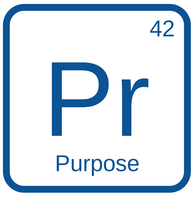|
The majority of the research on this site uses a definition of purpose and quantification approach that measures eudamonia and reflects, or is derivative of, the work of two psychologists, James Crumbaugh and Leonard Maholick. Inspired by Victor Frankl’s book, Man’s Search for Meaning, in 1964, they developed the 20-question Purpose in Life (PIL) test. The PIL test quantifies the extent to which A. one believes that life has a purpose, B. one can uphold a personal value system and C. has the motivation to achieve future goals and overcome future challenges. Researchers are able to correlate eudamonia and PIL scores with numerous variables and outcomes in career, well-being and culture.
Other researchers define purpose similarly:
"Purpose" and "eudamonia" are not terms, ideas or capacities invented in the 20th century, but have roots in various traditions and fields.
|


